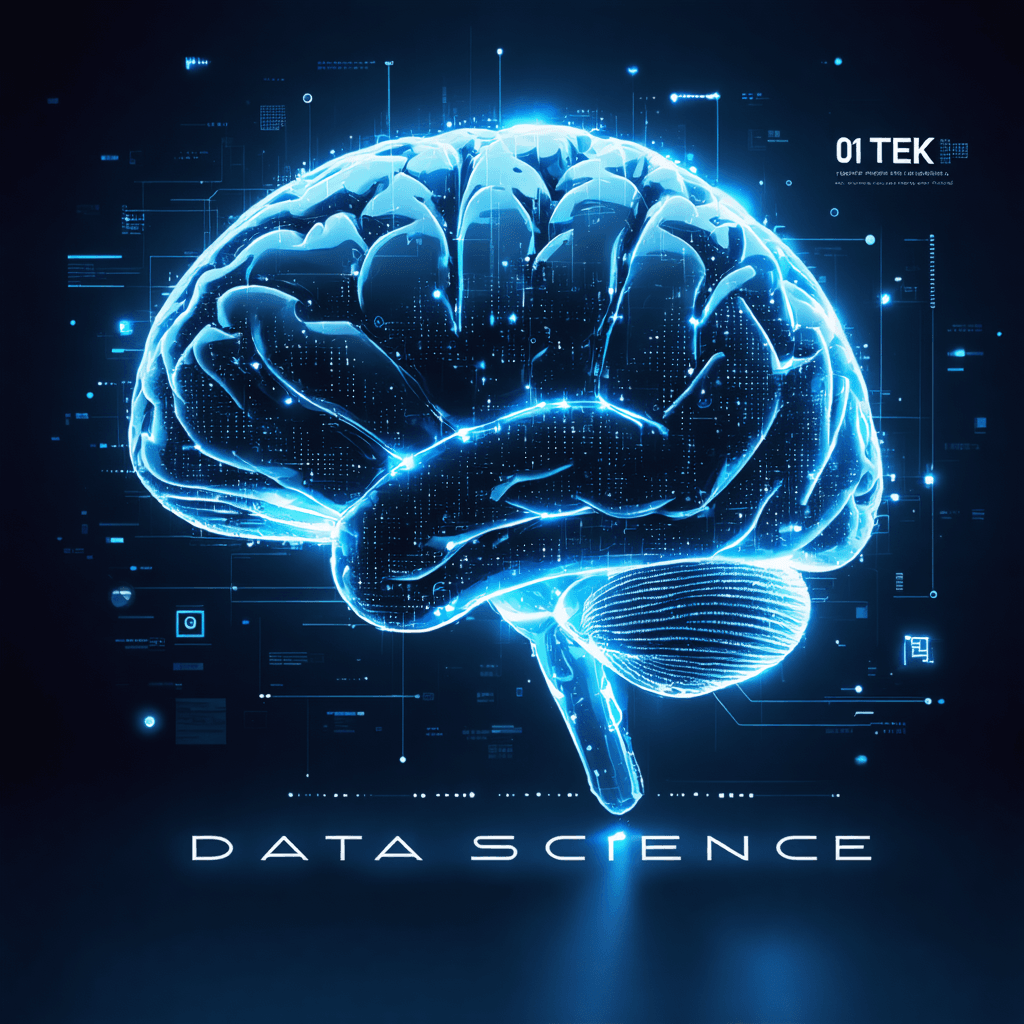Data Science Decoded: How This Game-Changing Field Is Shaping Our Future in 2025
In an era where data flows as abundantly as electricity, data science has emerged as the cornerstone of technological innovation and business transformation. As we navigate through 2025, this transformative field continues to reshape industries, challenge conventional wisdom, and create unprecedented opportunities for organizations and individuals alike.
The Evolution of Data Science in 2025
The landscape of data science has undergone remarkable evolution since its inception. Today, we're witnessing the convergence of advanced analytics, artificial intelligence, and machine learning at a scale previously unimaginable. According to recent industry reports, the global data science platform market is projected to reach $178 billion by 2025, marking a significant leap from previous years.
Key Trends Shaping the Field
1. AutoML and Democratization of Data Science
The democratization of data science has accelerated dramatically, thanks to AutoML (Automated Machine Learning) platforms. These tools are making it possible for professionals without extensive programming backgrounds to leverage the power of machine learning and artificial intelligence. Companies like H2O.ai and DataRobot are leading this revolution, offering intuitive interfaces that automate complex modeling processes.
2. Real-time Analytics and Edge Computing
The fusion of edge computing with data science has revolutionized how we process and analyze data. Real-time analytics capabilities have become crucial for industries ranging from autonomous vehicles to smart cities. Organizations are now able to make split-second decisions based on instantaneous data analysis, marking a significant shift from traditional batch processing methods.
3. Ethical AI and Responsible Data Science
As data science capabilities expand, so does the emphasis on ethical considerations and responsible practices. In 2025, organizations are increasingly adopting frameworks for responsible AI development, ensuring transparency, fairness, and accountability in their data science initiatives. This includes robust measures for data privacy, bias detection, and model explainability.
Industry Applications and Impact
Healthcare Revolution
The healthcare sector has witnessed perhaps the most profound impact of data science. Predictive analytics are now being used to:
- Forecast patient admissions and optimize hospital resources
- Identify high-risk patients before conditions become critical
- Accelerate drug discovery through computational methods
- Personalize treatment plans based on genetic and lifestyle data
Financial Services Transformation
Banks and financial institutions are leveraging data science for:
- Real-time fraud detection
- Algorithmic trading strategies
- Personalized banking experiences
- Risk assessment and credit scoring
- Customer churn prediction
Environmental Protection
Data science is playing a crucial role in environmental conservation:
- Climate change modeling and prediction
- Wildlife population monitoring
- Natural disaster prediction
- Resource optimization in agriculture
Essential Skills for Data Scientists in 2025
The modern data scientist's toolkit has evolved to include:
Programming Languages
- Python remains dominant
- R for statistical analysis
- Julia for high-performance computing
Cloud Computing
- AWS, Azure, and Google Cloud Platform expertise
- Understanding of distributed computing
- Knowledge of cloud-native tools
Machine Learning & AI
- Deep learning frameworks
- Natural Language Processing
- Computer Vision
- Reinforcement Learning
Data Visualization
- Advanced visualization tools
- Storytelling with data
- Interactive dashboard creation
Challenges and Opportunities
While the field presents immense opportunities, several challenges persist:
Challenges
- Data privacy and security concerns
- Shortage of qualified professionals
- Integration of legacy systems with modern tools
- Maintaining model accuracy and reliability
- Keeping pace with rapid technological changes
Opportunities
- Remote work possibilities
- High demand across industries
- Competitive compensation
- Innovation potential
- Career growth prospects
Future Outlook
The future of data science appears increasingly bright, with emerging technologies like quantum computing and neuromorphic computing promising to push the boundaries even further. We're seeing the rise of:
- Quantum machine learning algorithms
- Advanced natural language models
- Autonomous decision-making systems
- Hybrid AI systems combining multiple approaches
Best Practices for Success
To thrive in this dynamic field:
Stay Updated
- Follow industry trends
- Participate in online communities
- Attend virtual conferences
- Engage in continuous learning
Build a Portfolio
- Work on real-world projects
- Contribute to open-source initiatives
- Document your work process
- Share insights through blogs or articles
Network and Collaborate
- Join professional networks
- Participate in hackathons
- Engage with mentors
- Share knowledge with peers
Practical Steps to Get Started
For those looking to enter the field:
- Start with foundational courses in statistics and programming
- Build practical skills through hands-on projects
- Join online communities and forums
- Create a structured learning path
- Practice with real-world datasets
Looking Ahead
As we progress through 2025, data science continues to evolve at an unprecedented pace. The field offers endless possibilities for innovation and career growth, making it an exciting time to be part of this revolution.
Ready to embark on your data science journey? 01TEK offers comprehensive courses designed to help you master the essential skills needed in today's data-driven world. From beginner-friendly introductions to advanced specializations, our expert-led programs will guide you through every step of your learning journey. Explore our courses today and take the first step toward becoming a data science professional.
Show me a person who never made a mistake, and I will show you a person who never did anything.
William Rosenberg, founder of Dunkin’ Donuts




